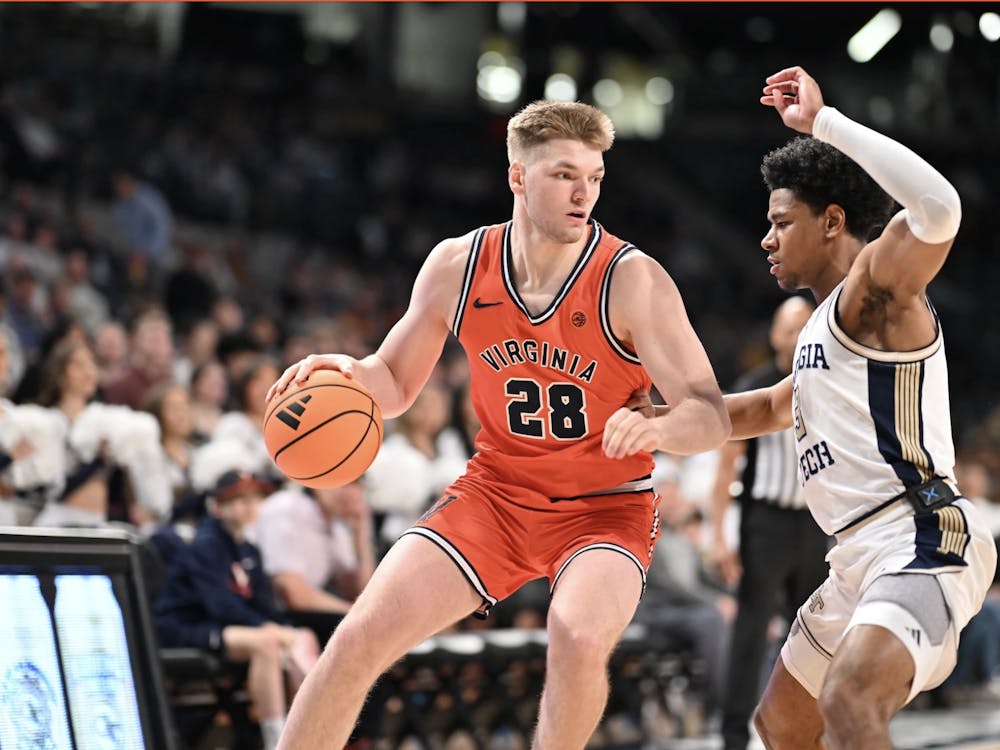Maybe Al Groh saw Saturday's 7-5 loss at North Carolina coming before the rest of us.
In his press conference Oct. 18, Groh made a statement that at the time seemed ludicrous but a week later looks prophetic.
"One of the things I've learned is never to gloat over anything like that because you're always just one game away from it happening to you yourself," Groh said, referring to UNC's 69-14 drubbing at the hands of Louisville two weeks ago.
Boy was he right. A week after Virginia completed the unthinkable by knocking off Florida State at home, it did the unthinkable again, going on the road and scoring three points of offense against a defense that hadn't held anyone under 14 points the entire season.
The Cavaliers amassed only 199 yards of total offense, nearly as little as the 118 yards put up by maligned Tar Heel running back Ronnie McGill.
Virginia's offensive struggle can be pinned on many things, one of which was injuries to key starting players. Sophomore offensive guard Marshall Ausberry left early in the game, forcing senior tackle Brad Butler to play right guard for the first time in his career. Quarterback Marques Hagans also still hobbled from a hamstring strain he suffered against Florida State. Hagans didn't practice at 100 percent in the week leading up to Virginia's trip to Chapel Hill, and his mobility was limited on the field against North Carolina.
But while injuries can be blamed for some of the offensive inefficiency, many feel the play-calling could also take the brunt of the blame.
Whether it was Groh, offensive coordinator Ron Prince or quarterbacks coach Mike Groh calling the majority of the offensive plays, the decisions were extremely conservative, with the Cavaliers seemingly running the same slow developing running plays throughout the game. And whether it was a product of coaching or simply receivers dropping balls, Hagans didn't complete a pass of longer than 13 yards on the day.
For Cavalier fans, the play-calling was especially disappointing for a staff that against Florida State spiced up the playbook, calling three trick plays, worked in more innovative downfield passing plays and gave Hagans more freedom to operate in and out of the pocket. Butler placed the loss squarely on the offense's shoulders.
"The whole game you try to keep up and keep things going," Butler said. "We tried that, but nothing seemed to work for us there at the end. Special teams, defense, they did a great job. [The offense] just didn't do our part today."
Groh too placed the blame on the offense, citing its inability to take advantage of field position late in the game as being crucial to the loss.
"Twice, all we have to do is get the ball to the 30-yard line and we're probably going to win the game," Groh said. "In our last three possessions, we had the opportunity to have the ball ... well within Connor's range, so we had our chances. We don't have any complaints."






